Fair Trade Coffee
The perfect cup of joe?
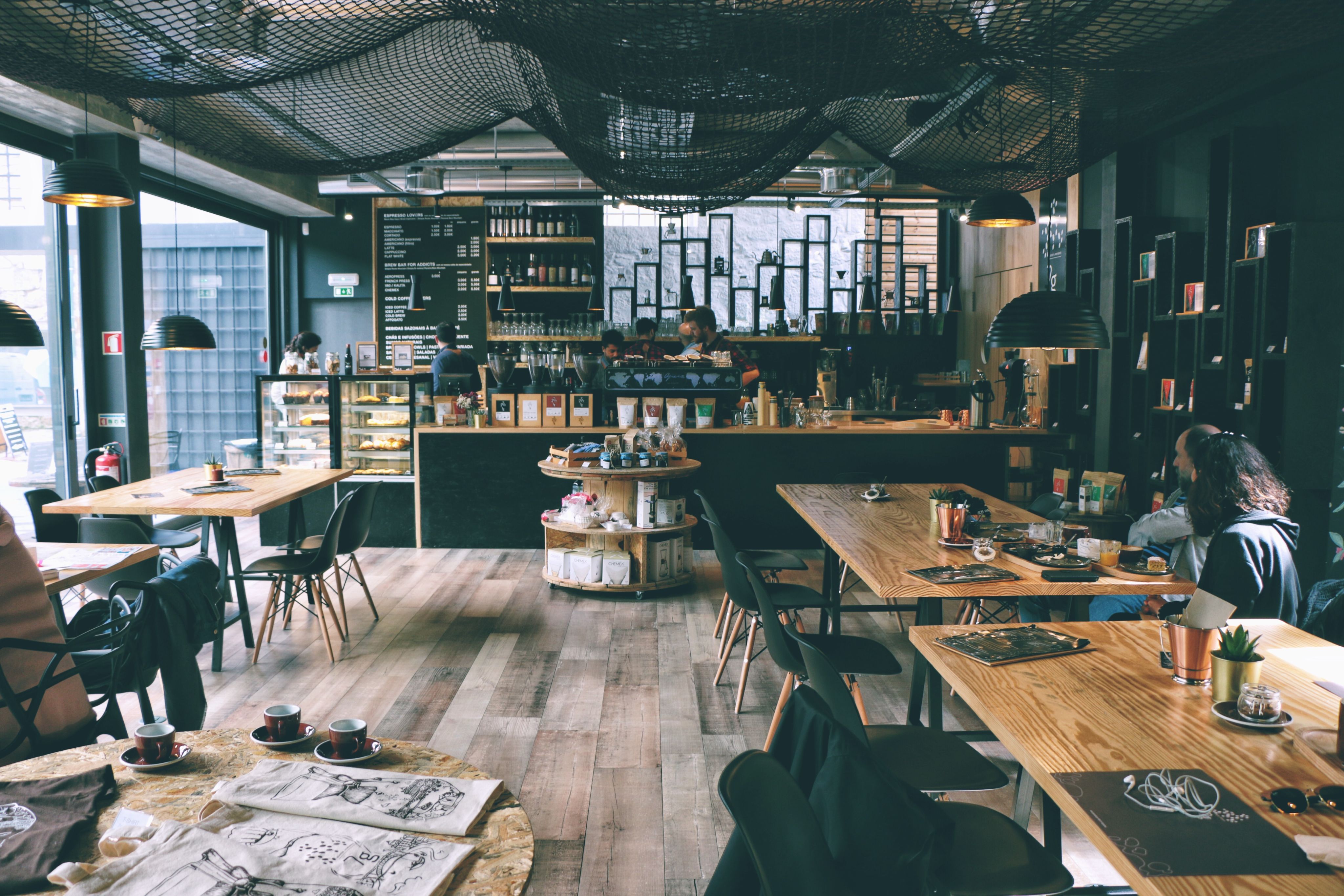
Coffee is one of the most consumed beverages on the planet, just behind water. Americans drink, on average, three cups of coffee per person and 400 million total cups a day—in total, 500 billion cups are consumed a year on average around the world.1
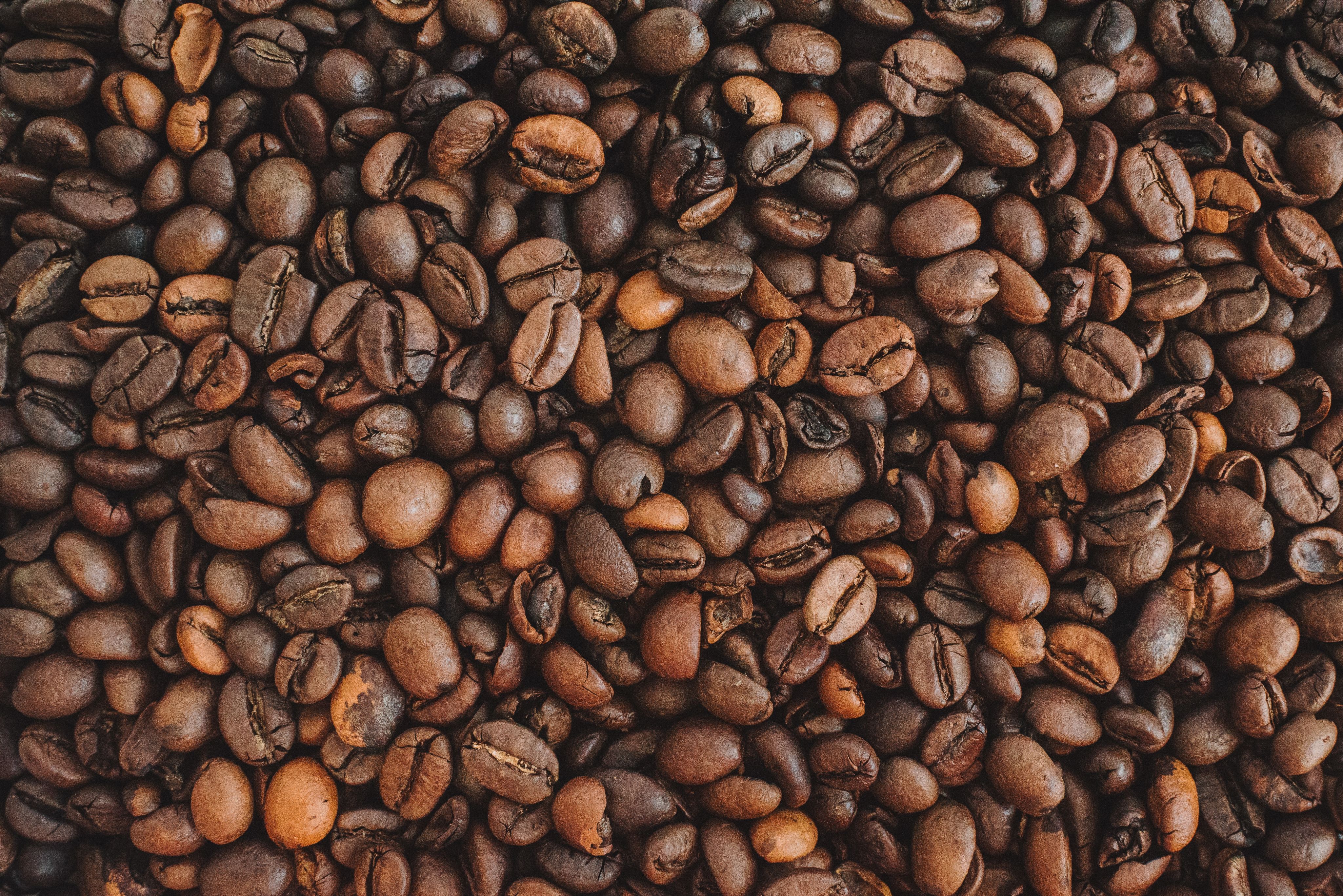
It is also one of my most consumed drinks, and to say "I love coffee" would be an understatement. Drip coffee, cold brew, instant, nitro—if there is a way to get to the caffeine inside those roasted beans, I will drink it.
The culture around coffee is one of morning pour over rituals, midday pick-me-ups, walking into a cafe and taking in the aromas, tasting flavors from around the world, and sharing a moment with friends.
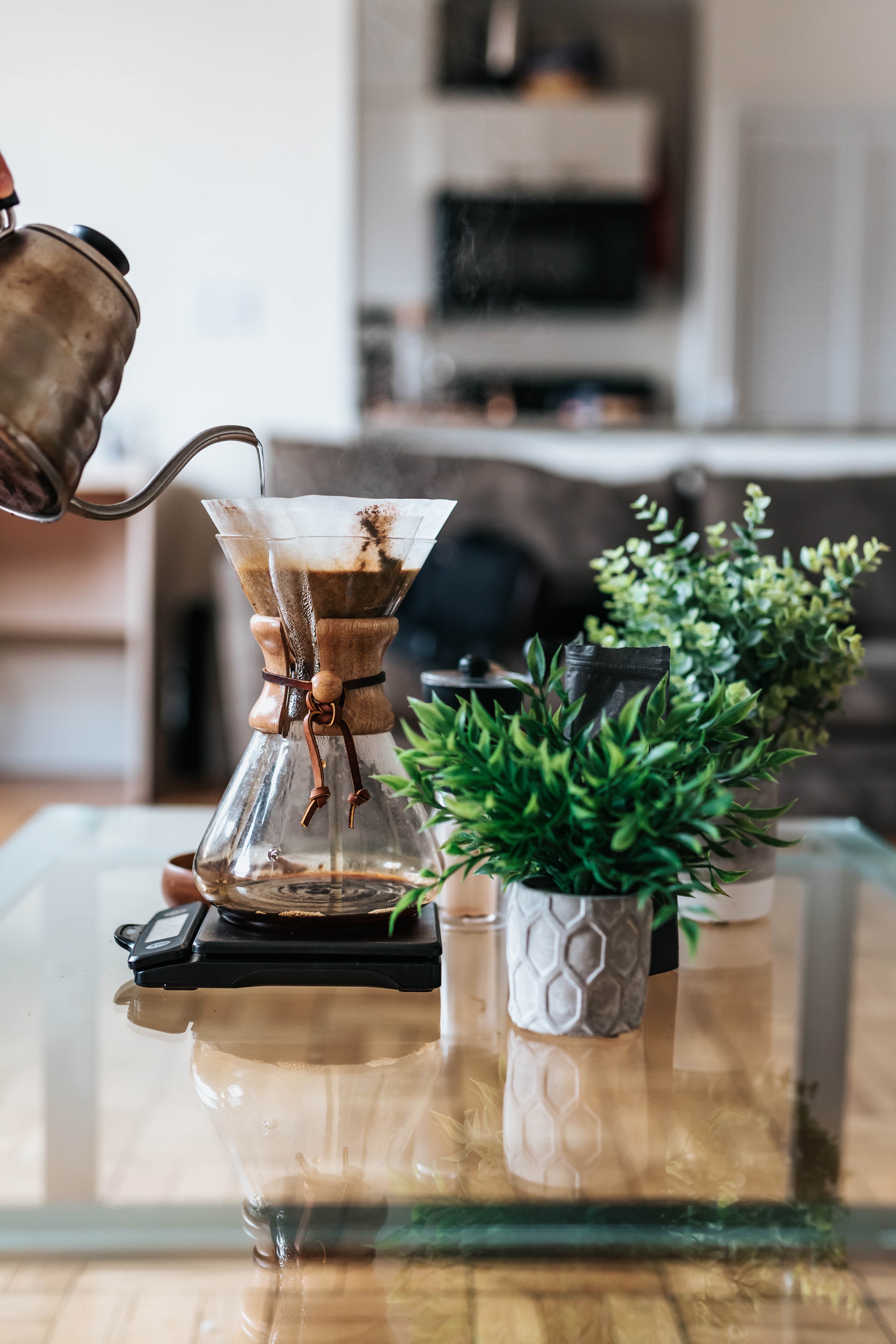
Photo by Najib Kalil on Unsplash
Photo by Najib Kalil on Unsplash
Coffee is also big business, bringing in over $460 billion in global sales in 2020.2 Brazil, the top coffee producer in the world, accounts for nearly half of the production of the next four biggest growers combined.
From the United States to Japan, Russia to South Africa and everywhere in between, coffee is a drink that people across the world share and enjoy.
However
As an industry coffee faces issues of labor exploitation in companies' supply chains and low wages to growers. Because it is a global commodity these issues affect people across the globe, but none more so than in the largest coffee producing countries.
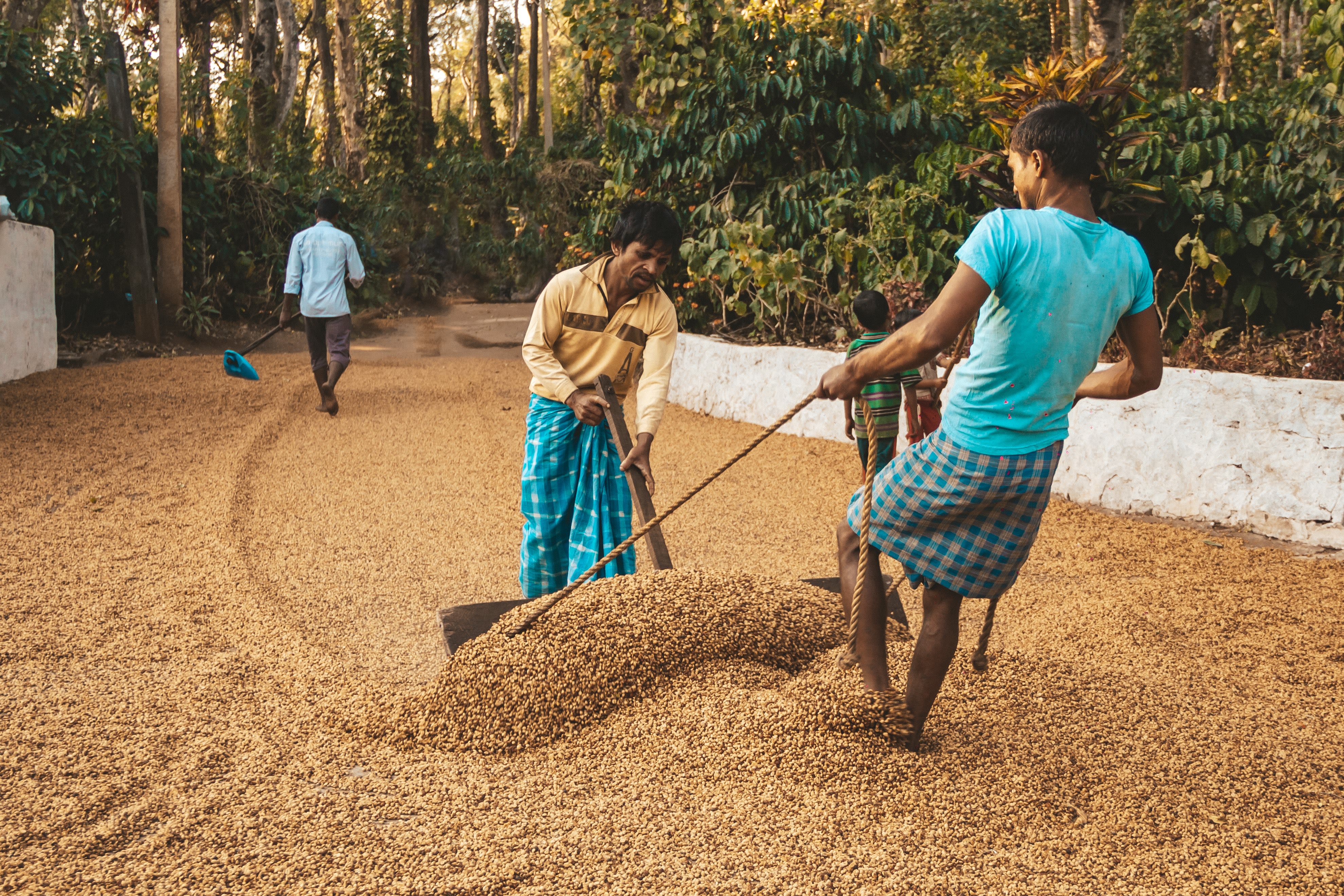
Take Starbucks, who has been caught buying from sources that use child and forced labor.
An investigation in Guatemala in 2020 reported children "who worked around eight hours a day, six days a week, looked as young as eight" and were paid just a sliver of the overall profits that came from their labor--the majority went to Starbucks employees, the corporation itself, and larger coffee collectives that run smaller farms.3
In Brazil, coffee plantations that take part in Starbucks' Coffee And Farmer Equity (C.A.F.E.) program—ostensibly created to improve working conditions for growers and offer fair prices—were reported in 2019 as using slave labor. 4
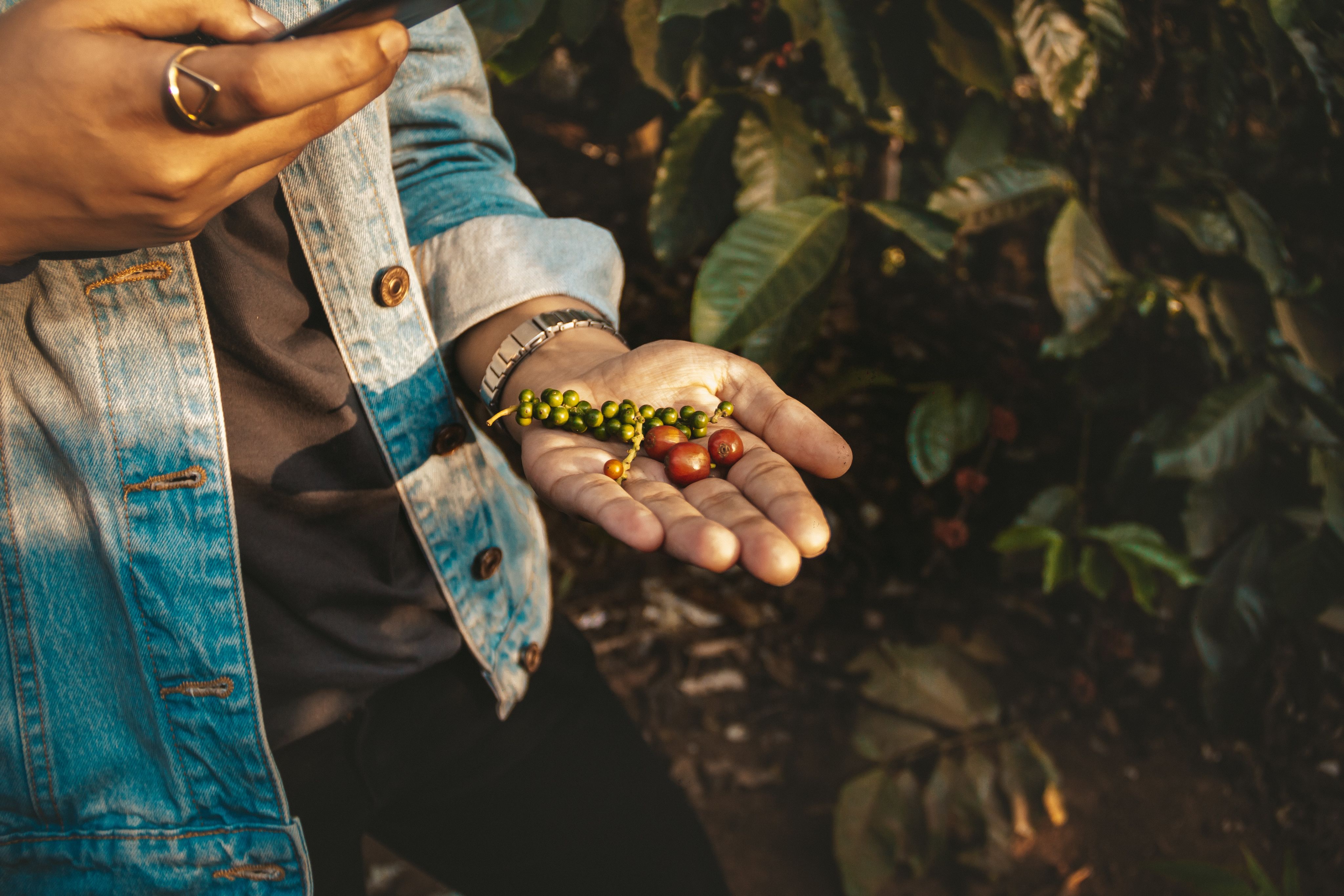
This is the Coffee Belt, a region of the world where the overwhelming majority of the planet's coffee comes from.
And here is where watchdog groups have documented forced and child labor.
Additionally, Brazil provides a good example of the industry's wage practices. Coffee is particularly "jittery" when it comes to the price paid to growers,
and the ever-present threat of climate catastrophe adds uncertainty and volatility in the global market. Brazil's currency is "weaker" compared to the US dollar, so farmers with smaller coffee plots get hit the hardest as they receive less money per pound of coffee they grow.5
But! I don't say all of this to make anyone feel guilty for drinking coffee.
The impetus for systemic change is not solely on individuals, but the larger international system.
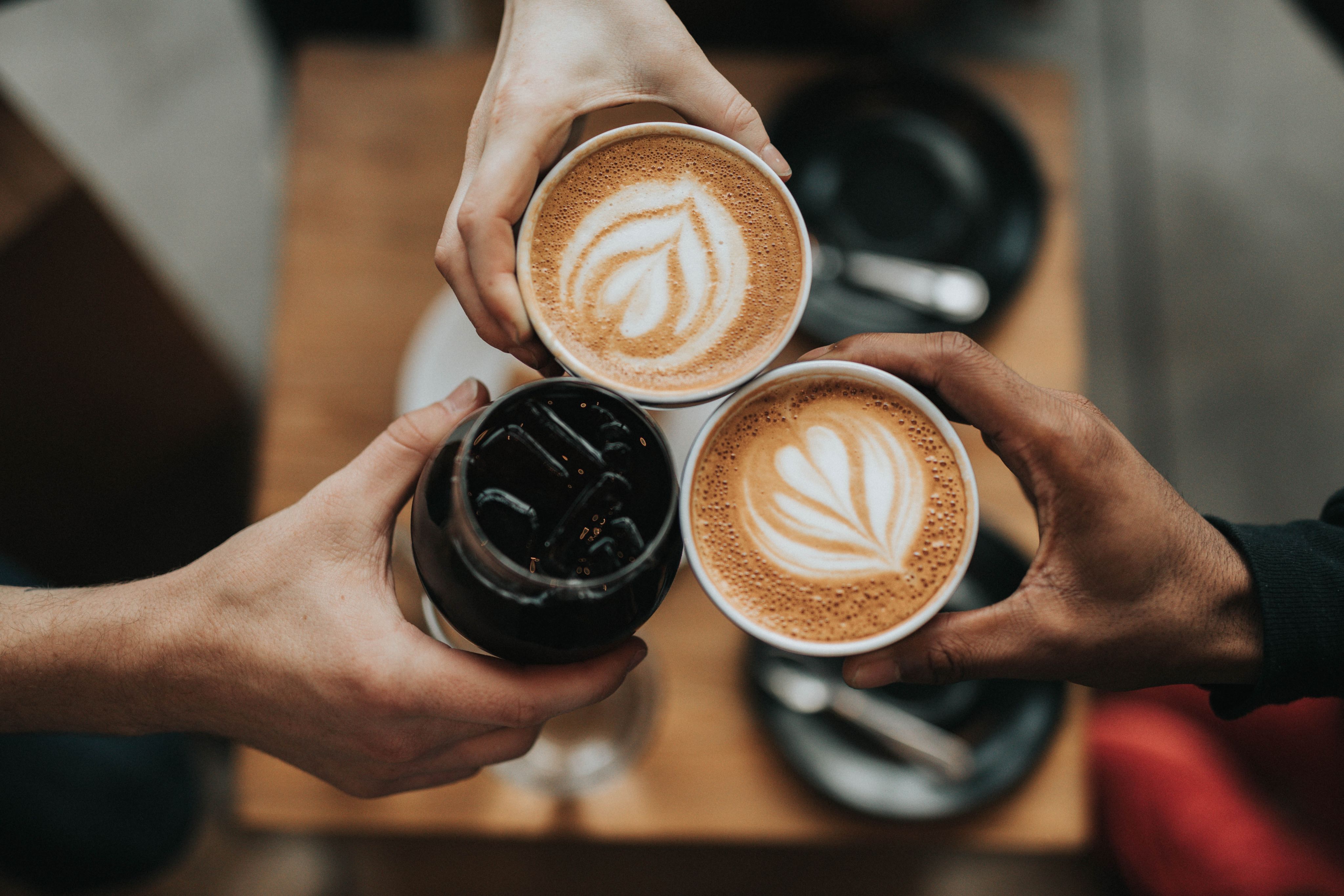
So... what can we do to push back on these practices in our own ways?
One solution is ...Fair Trade Coffee!
Fair Trade organizations around the world (like FairTrade International), promise...
- Fair prices for workers in producing countries
- A reduced environmental & ecological impact
- Fair and equitable labor practices
- Direct support to worker-owned cooperatives and local communities
- Empowerment of women & self-determination
- Labor, environmental, and social practices in line with the United Nations' Sustainable Development Goals for 2030 6
"Fairtrade certification is much more than merely an environmental certification, it is the only and best ethical and social certification that really ensures social and environmental, ethical and economic impact and therefore human impact."7
—Enrique Calderon, Coffee Farmer, Coopeagri Costa Rica
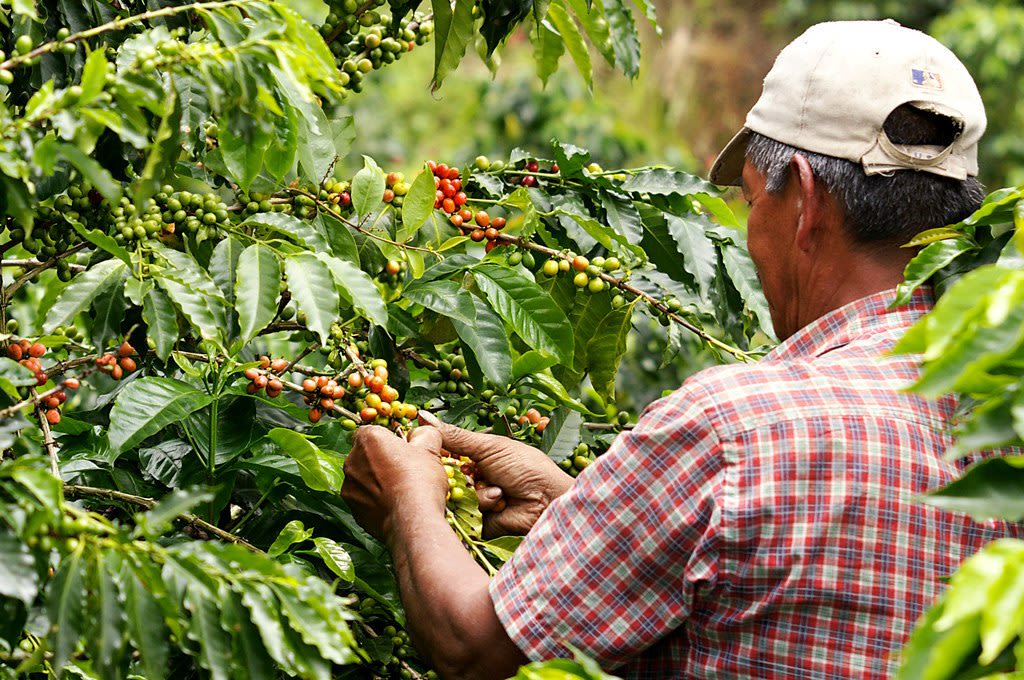
Coffee drinkers in the US increasingly want their purchase and consumption habits to reflect issues like labor rights, fair and decent wages, gender equality, environmental impact, and much more.8
Fair Trade—and other certification schemes like UTZ Coffee Certification—are becoming more common in American grocery stores, are getting recognized more and more, and are also becoming more trusted in their stated goals.9
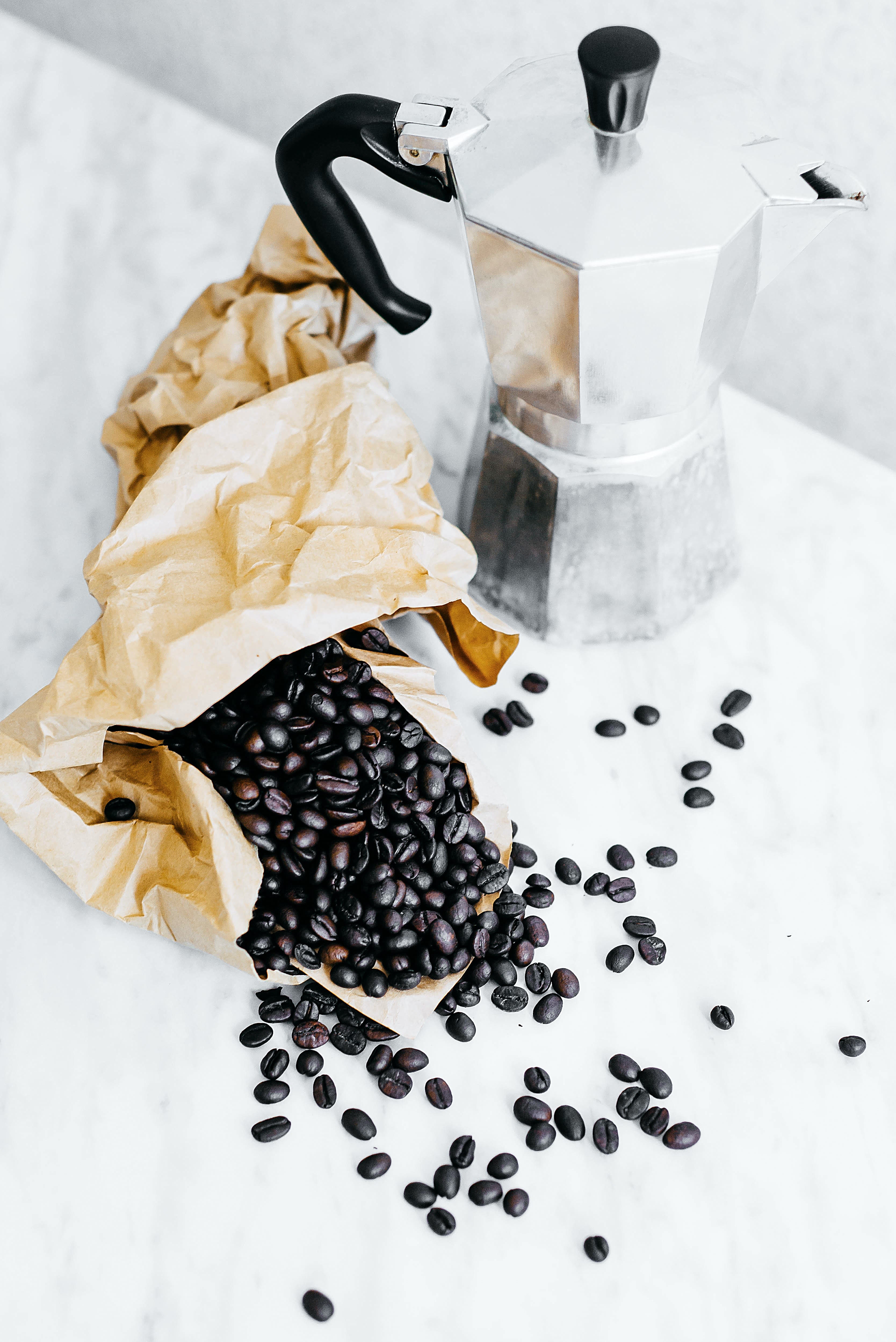
Photo by Alexandra Gorn on Unsplash
Photo by Alexandra Gorn on Unsplash
There is also a moral and philosophical element to the increased awareness and desire for fair trade-certified products. Buying a bag of coffee beans grown and picked by a small farmer's collective in Mexico is seen as a more ethical purchase, for example.10 This plays out in the increase in fair trade-certified coffee grown around the world.
The fair trade certification system does address many of the longstanding issues in the coffee industry
However...
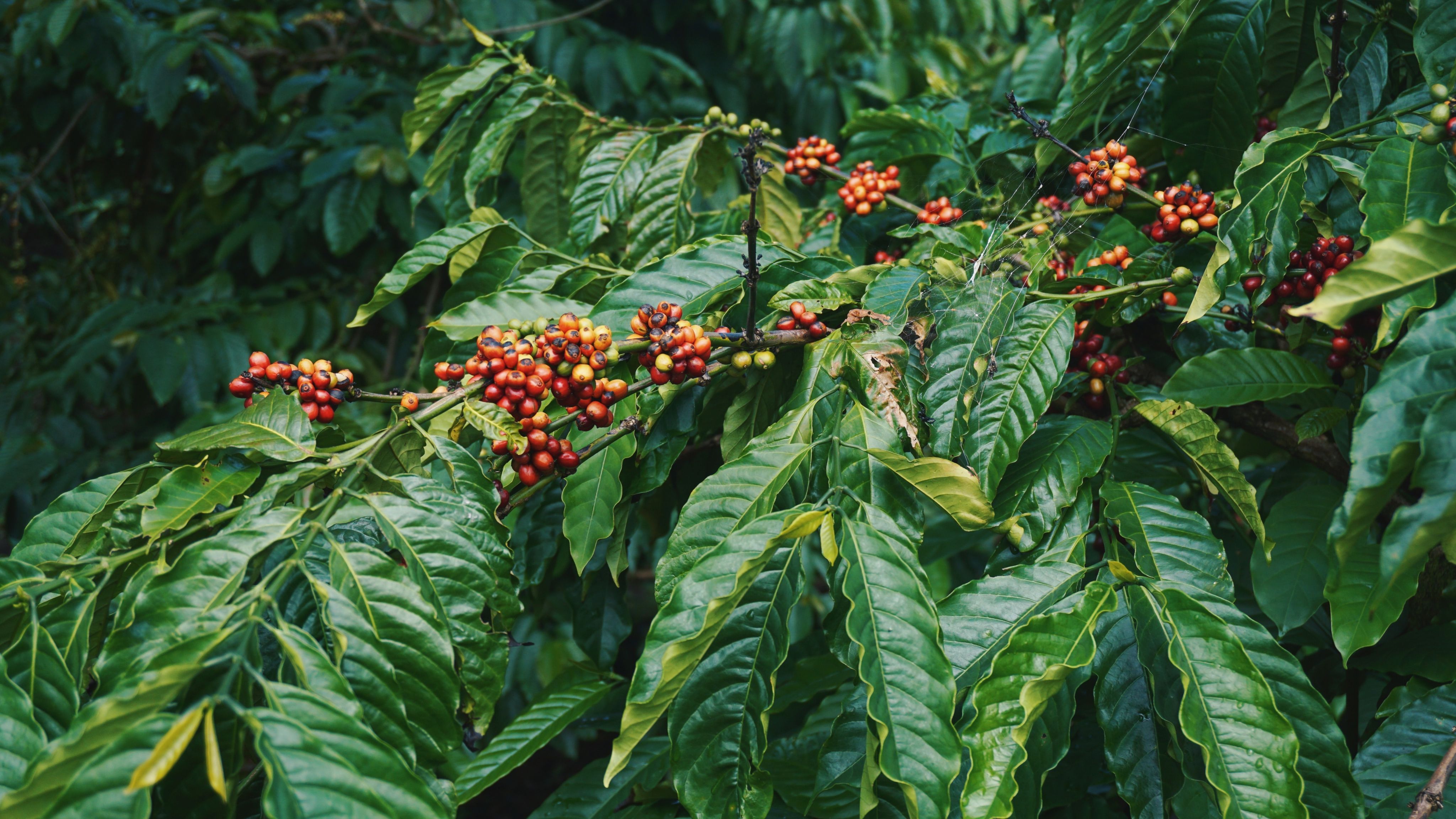
The world's top coffee consumers and importers do not see the fruits of their labor, either in the finished product or the wages they are paid. While more equitable than conventional coffee supply chains, profits still flow toward big distributors and "end-users", or the people drinking the finished product.11
Because there are economic incentives to a product being fair trade, "eco-labelling" or "greenwashing" can also occur—giving a product the certification even if it doesn't meet the strict requirements, but rather to increase profits.12
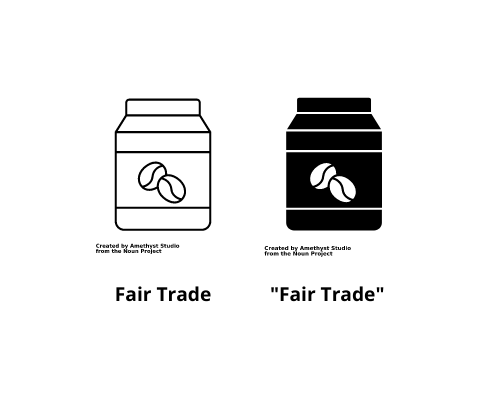
There is also a moral and philosophical element to the increased awareness and desire for fair trade-certified products. Buying a bag of coffee beans grown and picked by a small farmer's collective in Mexico is seen as a more ethical purchase, for example.10 This plays out in the increase in fair trade-certified coffee grown around the world.
Returning to the original question...what can we do?
There are ways to still get your morning buzz and midday pick-me-up while affecting change at a personal level.
- Shop local! Most local coffee shops and roasters brew and sell Fair Trade-certified beans. Here are some Pittsburgh cafes to check out.
- Support organizations working directly with coffee growers and their communities, such as Building New Hope. Donate, volunteer, do what you can!
Citations
1. Ana Djurovic, “33 Coffee Statistics: What All Coffee Drinkers Need to Know [2021],” Deals On Health (blog), August 1, 2021, https://dealsonhealth.net/coffee-statistics/.
2. “Global Coffee Market (2021 to 2025) - Insights & Forecast with Potential Impact of COVID-19 - ResearchAndMarkets.Com,” December 8, 2021, https://www.businesswire.com/news/home/20211208005778/en/Global-Coffee-Market-2021-to-2025---Insights-Forecast-with-Potential-Impact-of-COVID-19---ResearchAndMarkets.com.
3. Jamie Doward, “Children as Young as Eight Picked Coffee Beans on Farms Supplying Starbucks,” The Observer, March 1, 2020, sec. Business, https://www.theguardian.com/business/2020/mar/01/children-work-for-pittance-to-pick-coffee-beans-used-by-starbucks-and-nespresso.
4. Anna Canning, “Starbucks Has a Slave Labor Problem,” Fair World Project, June 17, 2019, https://fairworldproject.org/starbucks-has-a-slave-labor-problem/.
5. Anna Canning, “Low Coffee Prices - a Dire Call to Action,” Fair World Project, May 8, 2019, https://fairworldproject.org/low-coffee-prices-a-dire-call-to-action/.
6. “Fair Trade Coffee,” Grounds for Change, accessed February 15, 2022, https://groundsforchange.com/blogs/learn/fair-trade-coffee.
7. “The Standards,” Fairtrade America, accessed February 26, 2022, https://www.fairtradeamerica.org/the-standards/.
8. “Consumer Trends,” Fairtrade America, accessed February 27, 2022, https://www.fairtradeamerica.org/for-partners/consumer-trends/.
9. “Fair Trade Consumer Insights,” Fair Trade Certified, accessed February 27, 2022, https://www.fairtradecertified.org/business/consumer-insights.
10. Michael K. Goodman, “Reading Fair Trade: Political Ecological Imaginary and the Moral Economy of Fair Trade Foods,” Political Geography 23, no. 7 (September 2004): 891–915, https://doi.org/10.1016/j.polgeo.2004.05.013.
11. Haight, Colleen, “The Problem With Fair Trade Coffee,” Stanford Social Innovation Review 9 (2011): 7479, https://doi.org/10.48558/CJ8S-D897.
12. Acacia Smith, “Eco-Labelling: Market Transformation or Consumer Confusion?,” Sustainable Business Toolkit (blog), October 31, 2012, https://www.sustainablebusinesstoolkit.com/eco-labelling-market-transformation-or-consumer-confusion/.
